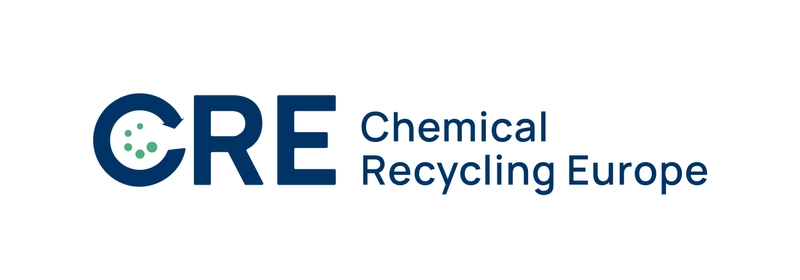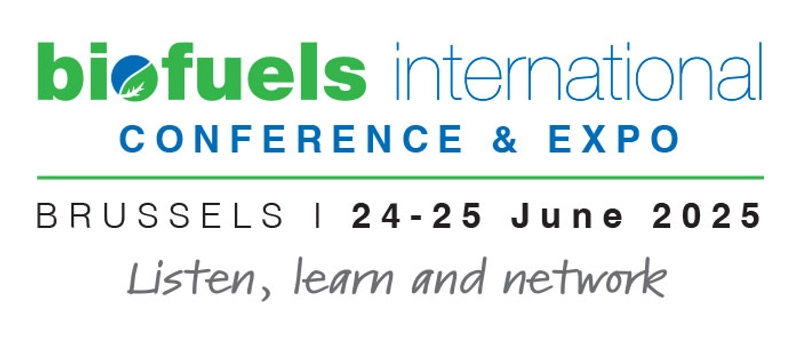Chemical Events in Brussels


CHEMICAL RECYCLING EUROPE
Participants at the upcoming event in Brussels will have a unique opportunity to delve into innovative tools and technologies aimed at advancing the circular economy. This gathering promises to be a pivotal moment for professionals and stakeholders interested in the future of advanced recycling in Europe.
As the need for sustainable practices becomes increasingly urgent, this event serves as a platform for meaningful discussions on how advanced recycling can play a critical role in reshaping waste management and resource recovery. Attendees can expect to engage with experts from various sectors, sharing insights and strategies that can drive progress in this essential area.
The exploration of new technologies will be a central theme, as participants assess cutting-edge solutions that can enhance recycling processes and reduce environmental impact. By showcasing these innovations, the event aims to inspire collaboration and spark ideas that can lead to tangible changes in how materials are reused and recycled across Europe.
In addition to discussions on technology, the event will also address broader implications for the circular economy, emphasizing the interconnectedness of economic growth, sustainability, and responsible resource management. This holistic approach is crucial as industries seek to transition towards more sustainable practices that not only benefit the environment but also drive economic value.
Overall, this event in Brussels represents a vital convergence of ideas, expertise, and aspirations focused on the future of advanced recycling. By fostering dialogue and showcasing advancements, it aims to equip participants with the knowledge and connections necessary to contribute to a more sustainable and circular economy in Europe.


Biofuels International Conference & Expo
Biofuels International Conference & Expo in Brussels: Charting a Greener Energy Future
Set in the heart of Europe, The Biofuels International Conference & Expo in Brussels, Belgium, marks its 16th edition by reaffirming the pivotal role of biofuels in the global energy transition. Over the course of two days, the event brings together leading producers, suppliers, regulatory authorities, and a wide spectrum of stakeholders working toward a low-carbon future. Following the remarkable success of last year’s gathering, which attracted more than 350 attendees from across the biofuels value chain, expectations for this year’s discussions are higher than ever.
With the climate crisis escalating and energy security becoming an increasingly urgent geopolitical concern, biofuels are stepping into the spotlight as scalable, actionable solutions. From first-generation bioethanol to advanced bio-based aviation fuels, the sector is rapidly evolving to meet modern energy needs — without compromising sustainability.
Key Themes: Decarbonization, Net Zero, and Energy Independence
At the core of the Biofuels International Conference & Expo lies a critical agenda: helping governments and businesses transition to cleaner energy models. The conference focuses heavily on decarbonization strategies and how biofuels can contribute to national and corporate efforts to achieve net-zero emissions.
Throughout the event, keynote speakers and panelists address the following central themes:
Integrating biofuels into national energy strategies
The role of sustainable aviation fuels (SAFs) in decarbonizing air transport
Regulatory frameworks and incentives for producers
Advanced feedstock options and land-use impacts
Innovations in bio-refinery technologies
The emphasis is not just on the science, but on actionable pathways that can scale efficiently — and equitably — across borders.
Industry Collaboration and Regulatory Alignment
One of the most valuable features of the Biofuels International Conference is its ability to foster cross-sector collaboration. In a world where energy solutions often evolve faster than policy, bringing together stakeholders from multiple levels — including government, research institutions, NGOs, and private industry — is vital.
A key panel discussion centered on the European Union’s Fit for 55 package and the Renewable Energy Directive (RED III), highlighting:
How policy clarity boosts investor confidence
The need for a unified certification system across EU states
Balancing food security with energy crop development
Encouraging small-scale biofuel initiatives in rural economies
Participants stressed the importance of aligning international regulations to avoid market fragmentation and to ensure smoother trade of certified sustainable fuels.
Expo Highlights: Technology, Feedstocks, and Market Trends
Running alongside the conference is a comprehensive expo featuring dozens of companies from across the biofuels landscape. The exhibition showcases innovations ranging from enzymatic conversion technologies to modular bioreactor units, providing a snapshot of where the industry is headed.
Some of the most popular exhibits included:
Next-generation algae-based biofuels
AI-driven biomass supply chain optimization tools
Upcycling waste fats and oils into biodiesel
Carbon intensity monitoring platforms
What stood out this year was the growing emphasis on flexible feedstock usage, allowing producers to source inputs from diverse geographies while maintaining sustainability criteria.
Bridging Science and Investment: What’s Fueling Growth?
The Biofuels International Conference is not just a scientific or technical forum — it is also an investment incubator. Sessions dedicated to funding mechanisms, risk reduction, and market forecasting drew strong interest from venture capitalists, private equity firms, and institutional investors.
Speakers from leading green investment firms outlined key factors influencing capital flow into the biofuels sector:
Policy certainty and long-term regulatory support
Commercial scalability of pilot projects
ROI visibility and carbon credit monetization
Availability of skilled labor and supply chain infrastructure
The conference acts as a bridge, connecting innovative startups with the capital and expertise required to expand globally.
Educational Tracks and Youth Engagement
This year’s event also included a dedicated track for universities and young professionals, underscoring the importance of grooming the next generation of biofuel experts. With increasing demand for talent in environmental sciences, chemical engineering, and energy policy, the education segment of the expo was particularly dynamic.
Topics covered in the student sessions included:
Introduction to biofuel chemistry and engineering
EU climate goals and the energy transition
Startup case studies in green fuel innovation
Career development workshops for future industry leaders
These sessions not only educated but inspired — a critical element in ensuring the long-term sustainability of the sector.
Biofuels as a Strategic Pillar of Global Energy Policy
As the curtains close on the 16th Biofuels International Conference & Expo, one message rings loud and clear: biofuels are no longer niche — they are necessary. In the collective push toward net zero, bio-based fuels provide an essential piece of the puzzle, particularly for hard-to-electrify sectors like aviation, shipping, and heavy transport.
Held at a time when global tensions and climate threats intersect, the event provided not only a platform for solutions but a shared sense of urgency. From innovative technologies and regulatory alignment to investment trends and youth engagement, the conference showcased a comprehensive vision for a bio-powered future.
In Brussels — a city that often sets the tone for continental energy and environmental policy — this summit cemented biofuels as a strategic pillar in building a cleaner, more resilient, and more secure energy world.